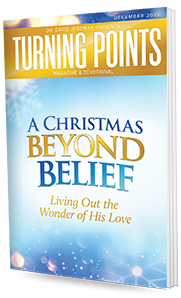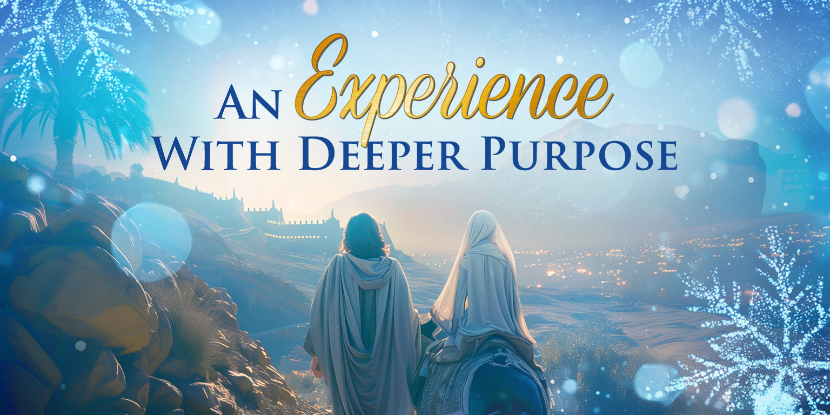From the March 2024 Issue

To Know Him
Preaching at an evangelistic crusade in Columbus, Ohio, in 1993, Dr. Billy Graham told of an experience he had at Harvard Divinity School. In a question and answer discussion forum filled with divinity students and faculty, a young man stood up and asked Dr. Graham a question: “Can you tell me, in plain and clear language, what must I do to be saved?” Dr. Graham’s answer to the student—in plain and clear language—was the same answer the apostle Paul gave to a man who asked him the same question nearly two thousand years before: “Believe on the Lord Jesus Christ, and you will be saved” (Acts 16:31).1
The man who asked Paul that question was the jailer in the city of Philippi. Paul and Silas had been beaten and thrown into jail for stirring up the city with their preaching, and the jailer was admonished to guard them carefully. But that night a strong earthquake hit the city. The doors to the jail sprang open, and the prisoners’ chains fell off. When the jailer woke up and saw that the doors were open, he feared for his life since the prisoners were his responsibility. He drew his sword and was about to kill himself when Paul shouted to him, letting the jailer know that he, Silas, and the other prisoners were still there.
We know deep in our heart that there is something and Someone bigger than ourselves.
The jailer had many questions, no doubt, but Paul gave him one answer to them all: “Believe on the Lord Jesus Christ, and you will be saved”—saved from death, saved from fear, saved from judgment for sins, saved from all that concerns you.
In that same 1993 message, Dr. Graham also told of being in Korea during the war in that country. He met an American military chaplain who said he had been to seminary, had pastored a large church, and had been a seminary professor before becoming a military chaplain. He told Dr. Graham that he had been called to the bedside of a young soldier who was dying from his wounds. The young soldier knew he was dying and asked the chaplain, “What can I do to find peace in my heart? I know I’m dying!” The chaplain told Dr. Graham that he hadn’t known what to tell him. In spite of all his Bible knowledge and ministry experience, the chaplain didn’t know how to help a dying soldier find peace in his final hours.2
Though worded differently, the soldier’s question was the same as the Harvard student’s question and the same as the Philippian jailer’s question: “What must I do to be saved?”
It’s Not Who I Am
I don’t believe it is an overstatement to say that question is life’s most important question. Philosophers and sages through the ages have speculated about life’s most important questions. Their offerings are usually versions of the following: Who am I? Where did I come from? What is my purpose? Where am I going? Those are all worthy questions, but they are all focused on the years we live on this earth. They omit the most important question: What happens to me when I die?
Christ is the answer to all of life’s questions.
God has put eternity in your heart—in all our hearts. You may or may not have asked life’s most important question and found God’s answer. I can’t assume that every person reading this magazine has discovered the answer: Believe on the Lord Jesus Christ. Thousands of people every year contact Turning Point seeking spiritual guidance, and we are happy to send them this magazine as part of our response. But we would be remiss in not making sure, from time to time, that everyone reading this magazine knows why and how they should believe on the Lord Jesus Christ. After all, Christ is the answer to all of life’s questions. And coming to know Him is the first step in finding God’s answers.
It’s Who Christ Is
If you have not yet believed in Christ, I hope the following three points will encourage you. And if you do know Christ, consider how these points might help you share with someone what they must do to be saved.
Christ died in our place so that what we have done would not be a barrier to our being saved.
•It’s not what you’ve done; it’s what Christ has done for you. The first thing we think about when it comes to knowing God is our sins. We feel guilty because we are! But the Good News is that God sent His Son to earth to live a sinless life (Hebrews 4:15) and to credit us with His righteousness: “For [God] made [Christ] who knew no sin to be sin for us, that we might become the righteousness of God in Him” (2 Corinthians 5:21). Christ died in our place so that what we have done would not be a barrier to our being saved. It’s what Christ did for us that matters.
•It’s not where you’ve been; it’s where you’re going. No one in the Bible experienced a turn around as dramatic as the apostle Paul. Before knowing Christ, he had the blood of Christians on his hands. But after knowing Christ, he wrote, “Forgetting those things which are behind and reaching forward to those things which are ahead, I press toward the goal for the prize of the upward call of God in Christ Jesus” (Philippians 3:13-14). Paul believed what God had said through the prophet Isaiah, “Though your sins are like scarlet, they shall be as white as snow” (Isaiah 1:18).
If you have never believed on the Lord Jesus Christ—or even if you are not sure—you can do that right now by praying words like these: “Dear God, I acknowledge to You that I am a sinner. Please forgive me. Thank You for sending Jesus Christ to pay the price for my sins. I place my faith in Him now as my Lord and Savior. Thank You for Your forgiveness and the gifts of salvation and eternal life. Amen.”
If you prayed that prayer, you have become the answer to the question, “What must I do to be saved?”—by believing on the Lord Jesus Christ. Your eternal life doesn’t begin when you die physically; it begins the moment you put your faith in Christ. You are now God’s child, a member of God’s forever family, destined to live in His presence for all eternity.
Knowing Christ doesn’t automatically answer all of life’s biggest questions. But it is the starting place. By spending time in God’s Word and in prayer, the Holy Spirit will guide you deeper into Christ “in whom are hidden all the treasures of wisdom and knowledge” (Colossians 2:3).
Knowing Christ is only the beginning of the ultimate goal of making Him known to all the world.
Sources:
1Billy Graham, “Life’s Most Important Question,” Billy Graham Evangelistic Association.
2Ibid.
More Articles
This Month's Magazine Resource
Subscribe Now
Each month, read articles and devotionals from Dr. David Jeremiah that will encourage, challenge, and strengthen your walk with the Lord.















 Turning Point for God is a tax-exempt, not-for-profit, religious corporation as defined under Section 501(c)(3) of the Internal Revenue Code. Your donation gift(s) are very much appreciated and may qualify as a charitable deduction for federal income tax purposes.
Turning Point for God is a tax-exempt, not-for-profit, religious corporation as defined under Section 501(c)(3) of the Internal Revenue Code. Your donation gift(s) are very much appreciated and may qualify as a charitable deduction for federal income tax purposes.




